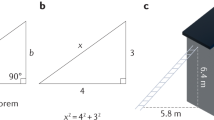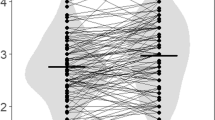Abstract
ONE of the most troublesome of the problems that confront the teacher in the laboratory is that of evoking the interest of generation after generation of students (and indeed, of preserving his own interest, and interests). The succession of familiar experiments on the law of moments, the simple pendulum, the refractive index of a prism and the like is, as usually presented, dreary and deadening enough in all conscience, and the present writer has never seen a determination of the latent heat of steam (and he must have seen some hundreds) which has aroused in the breast of a junior student of to-day any trace of the emotions (possibly) experienced by a student of Black. The truth is that the stereotyping of an experiment for laboratory use and the mechanical handing-out of a schedule and a mass of the relevant apparatus take half the life out of the exercise.
The Science Masters' Book, Series 2
Part 1: Physics. Pp. xvi + 273 + xv. 7s. 6d. net. Part 2: Biology, Chemistry, Experiments for Receptions. Pp. xvi+ 252 + xv. 7s. 6d. net. Being Experiments selected from the School Science Review by a Committee of the Science Masters' Association, edited and arranged by G. H. J. Adlam. (London: John Murray, 1936.)
This is a preview of subscription content, access via your institution
Access options
Subscribe to this journal
Receive 51 print issues and online access
$199.00 per year
only $3.90 per issue
Buy this article
- Purchase on Springer Link
- Instant access to full article PDF
Prices may be subject to local taxes which are calculated during checkout
Similar content being viewed by others
Rights and permissions
About this article
Cite this article
F., A. Laboratory Teaching. Nature 137, 440–441 (1936). https://doi.org/10.1038/137440a0
Issue Date:
DOI: https://doi.org/10.1038/137440a0
Comments
By submitting a comment you agree to abide by our Terms and Community Guidelines. If you find something abusive or that does not comply with our terms or guidelines please flag it as inappropriate.



